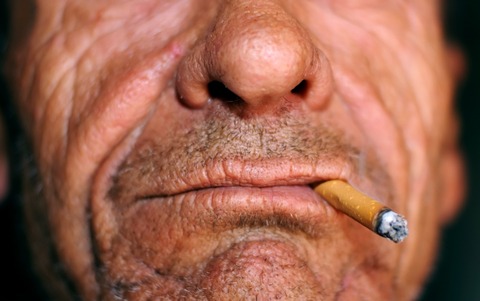Age and Smoking Less Important Than Other Factors for Mesothelioma Outcomes
A newly published study suggests that a mesothelioma patient’s age and smoking history is less important to prognosis than certain biomarkers or what treatment they choose. The study comes from scientists at the National Institute of Respiratory Diseases in Mexico City. They performed a retrospective analysis of 136 patients with pleural mesothelioma. The goal was to see which factors played the biggest role in outcomes. Age and smoking were among seven factors evaluated. It turns out they were not the most important ones. Who Gets Pleural Mesothelioma? Malignant mesothelioma is the cancer most closely associated with asbestos exposure. Most people who get it have lived or worked around asbestos. Mesothelioma can take decades to develop. Most patients are over 65. …

